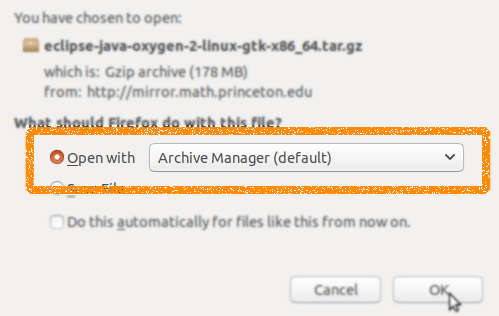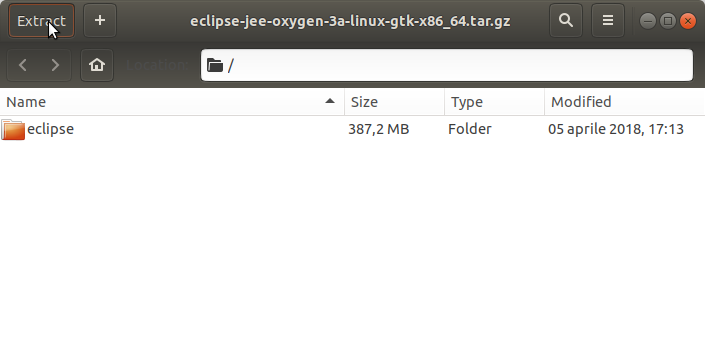Setting Up
[ad_slider autoplay=”true” interval=”8″ count=”5″]
-
2. Downloading Eclipse Java for Ubuntu
Download Eclipse IDE for Java EE on Linux
Eclipse IDE Java EE tar.gz Linux[ad_slider autoplay=”true” interval=”8″ count=”5″]On Firefox if possible on Prompt Select directly “Open with Archive Manager”!

Or after with Chrome Click the Button on the Page’s Bottom, or again Double-Click on it in the File Manager…
-
3. Extracting Eclipse Archive
Then Extract Eclipse tar.gz into /tmp Directory
If it does Not Open automatically then Double-Click on File Manager:
Or from Command Line:tar xvzf ~/Downloads/*.tar.gz -C /tmp/
-
4. Installing Eclipse on Ubuntu
Next follow with Ubuntu Eclipse Installation.
For a System wide installation we make the superUser as owner:
sudo chown -R root:root /tmp/eclipse
Authenticate with the User Admin Pass.
If Got “User is Not in Sudoers file” then see: How to Enable sudo
Then we Move the Eclipse content into the /opt Directory with:sudo mv /tmp/eclipse /opt/
Again make a Symlink to put Eclipse into the working Path:
sudo ln -s /opt/eclipse/eclipse /usr/local/bin/eclipse
-
5. Oracle Java JDK Installation
How to Install Recommended Oracle Java JDK on Ubuntu
Install Oracle JDK for Ubuntu[ad_slider autoplay=”true” interval=”8″ count=”5″]To check your current JDK version:
javac --version && java -XshowSettings:properties -version 2>&1 | grep 'java.vendor'
If it’s the official Oracle JDK, the output will include:
java.vendor = Oracle Corporation.
[ad_slider autoplay=”true” interval=”8″ count=”5″]
Contents